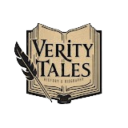With a legacy rich in culture and impact on the international scene, Russia stands as a nation of great political strength in history. But Kievan Rus emerged before the splendor of contemporary Russia.
Our narrative begins in 862 when the Kievan Rus developed under the authority of strong Viking Oleg of Novgorod. Kiev rises to become the hub of this expanding kingdom in under twenty years, therefore setting the scene for hundreds of years to come.
Imagine now the time of Prince Vladimir the Great, a key person who adopted Orthodox Christianity, therefore permanently altering Russia’s spiritual terrain.
Kiev blossomed under political and cultural relevance in Eastern Europe under his rule, then under the wise guidance of his son, Yaroslav the Wise.
Still, the tides of history bring both good and tragedy. Under the Khan of the Golden Horde, the Mongol Empire governs the territory for more than two hundred years after attacking Russia in 1237 ruins its cities.
But from the wreckage of hardship rises Ivan III, sometimes known as Ivan the Great, whose relentless passion and vision free Russia from Mongol rule.
The Muscovite grip increases under his rule, signaling a new chapter in Russia’s fate.
History has, nonetheless, also seen some dark periods. Ivan IV, often known as Ivan the Terrible, casts a lengthy shadow over Russia as he strictly dominates it.
Though he enlarged Russia’s territory into Siberia, his life was cut short by a stroke in 1584 and his legacy is marred by doubt and anxiety.
Peter the Great, whose rule from 1689 to 1725 changed Russia’s basic structure. His visionary leadership modernized Russia’s military, rebuilt the country, and created the magnificent metropolis of St. Petersburg, thereby reaffirming Russia’s cultural grandeur once again.
Still, Peter’s legacy marked simply the start of Russia’s grandeur.
Catherine the Great (1762–1767) reign marked Russia’s entry into the Age of Enlightenment.
The bounds of the country grew during her rule, the arts blossomed, and Russia saw an intellectual and cultural awakening of sorts.
Every empire, meantime, has challenges; Russia was no exception. Fought from 1853 to 1856, the Crimean War tested the nation’s fortitude and will and left it weaker but not demoralized.
But the Emancipation Reform of 1861, under Czar Alexander II’s rule, really changed the Russian terrain. The end of serfdom marked a fresh phase of social and economic transformation that permanently changed Russian history.
And then, on November 6th and 7th, 1917, there was a dramatic change in the tides of history as the Bolsheviks, under Vladimir Lenin, grabbed hold and spawned the Communist Party of the Soviet Union.
Lenin’s leadership profoundly affected the path of global history until his death in 1924, therefore determining the fate of the Soviet Union.
Joseph Stalin, whose rule from 1929 to 1953 launched Russia on a global scene.
But among the splendor, the Great Purge looms big, a sad episode in Russian history that cost the life of hundreds of thousands.
Russia’s involvement becomes even more important as the specter of World War II looms heavy over Europe. From the invasion of surrounding nations to the crucial Battle of Stalingrad, Russia’s efforts accelerated the conclusion of the world war.
Still, triumph in battle spawned a new period of conflict and resentment. The Cold War, a time of ideological strife and nuclear brinkmanship engulfing the globe in terror, began with the passionate remarks of Winston Churchill in 1946.
The first atomic weapon the Soviet Union detonated in 1949 heightened the arms race and sent the planet into a condition of constant uncertainty and anarchy.
Despite the turbulence, triumphs and creative ideas surfaced. With the launch of Sputnik I on October 4, 1957, space exploration entered a new front and Yuri Gagarin’s historic trip into the comos was set up.
The possibility of strife loomed big. Only diplomatic efforts of leaders such as Nikita Khrushchev and John F. Kennedy helped to prevent the Cuban Missile Crisis of 1962 from bringing the world almost to nuclear war.
Throughout the conflicts, times of unity and optimism surfaced. Though the globe teetered on the brink of disaster, efforts to defuse the nuclear stalemate revealed hints of a better future.
One instance serves as a sobering reminder of the risks associated with nuclear power among the successes and tragedies. The 1986 Chernobyl disaster rocked the globe and left a legacy of death.
A turning point in Russian history, June 12, 1991 With Boris Yeltsin becoming the president, democracy began to blossom in Russia and the Soviet Union’s demise was set off.
The Soviet Union broke apart in December of the same year, therefore starting a new period of freedom for its former countries.
Russia started on a road of economic reform and disarmament when Ukraine and Belarus joined the Commonwealth of Independent States.
Conflict lurked on the horizon among the winds of transformation. Initiated by struggles for freedom, the terrible conflict in Chechnya created a path of destruction and grief that permanently changed the country.
Vladimir Putin became a prominent player in Russian politics in the dawn of the modern era. Under both praise and criticism, his administration changed the geopolitical scene of the world.
But among the successes and difficulties, claims of meddling and influence cloud Russia’s reputation internationally.
The FBI’s looking into allegations of hacking and manipulation highlighted the complexity of contemporary politics. One thing is certain, though—Russian history is a tapestry spun with strands of power, conflict, and transformation along the turbulent path.
From the golden days of Kievan Rus to the turbulent years of the Soviet Union, Russia’s legacy echoes throughout the chronicles of history.
More resources:
Book: Russia History Book
Video: Russia History Video

